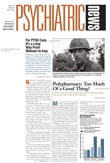During the past decade or so, evidence has been building that psychological stress can dampen people’s immune responses to diseases such as influenza, hepatitis B, and pneumonia. Now a new study reported in the March/April Psychosomatic Medicine shows that psychological stress can also blunt antibody responses to flu vaccination.
The researchers—including Gregory Miller, Ph.D., an assistant professor of psychology at the University of British Columbia; Bruce Rabin, M.D., Ph.D., a professor of pathology at the University of Pittsburgh; John Treanor, M.D., a professor of medicine at the University of Rochester—conducted their study on 83 healthy, first-year students at Carnegie Mellon University.
Using hand-held computers, the students reported for 13 days the extent to which they felt stressed and also various health-related practices such as cigarette smoking, alcohol use, physical activity, and sleep habits. Each day, the students also collected a saliva sample that was used to measure levels of the stress hormone cortisol.
Three days into this 13-day period, the subjects were likewise measured for baseline antibody levels and then were given the vaccine. One month after they had been vaccinated, and again four months later, their antibody response to the vaccine was measured.
The researchers analyzed the stress results from the subjects and used these results to create an average daily stress index and cumulative stress index for each subject. They then stratified subjects into low-stress, medium-stress, and high-stress groups and attempted to see whether they could find any links between these groups and their vaccine antibody responses.
The low-stress, medium-stress, and high-stress groups began the study with similar antibody levels. At both one month and four months following vaccination, however, subjects in the high-stress group had significantly fewer antibodies to the vaccine than subjects in the medium-stress and low-stress groups.
The investigators then assessed whether there might be critical periods of time around vaccination during which stressors might have a deleterious impact on vaccine antibody response. They discovered that stress levels during the prevaccine period were not associated with antibody response over the follow-up period. The same was true of stress on the day of the vaccine. However, there was a strong link between stress experienced eight to 10 days after vaccination and vaccine antibody response.
The study also revealed that the deleterious impact of psychological stress on vaccine antibody response appeared to be mediated not by the stress hormone cortisol, alcohol consumption, cigarette smoking, or physical activity, but by sleep deprivation. Indeed, some other investigators have found that sleep deprivation lowers antibody response to vaccination.
Do these findings have any clinical implications—for example, can stress diminish the efficacy of human vaccinations? The researchers are not sure since stress dampened vaccine antibody response by only 12 percent to 17 percent. In any event, they concluded, their results “may shed light on the mechanisms through which stress increases vulnerability to infectious diseases.”
The study was financed by the National Institutes of Health, National Alliance for Research on Schizophrenia and Depression, John D. and Catherine T. MacArthur Foundation Research Network on Socioeconomic Status and Health, the American Heart Association, and the Michael Smith Foundation for Health Research.
An abstract of the study, “Psychological Stress and Antibody Response to Influenza Vaccination: When Is the Critical Period for Stress, and How Does It Get Inside the Body?,” is posted online at www.psychosomaticmedicine.org/cgi/content/abstract/66/2/215. ▪
